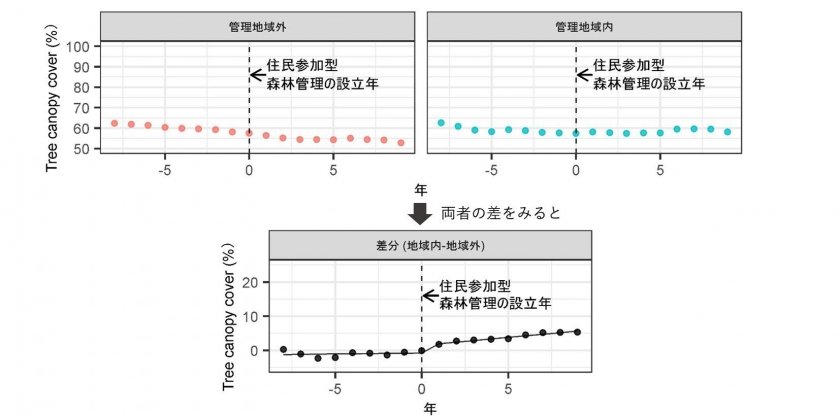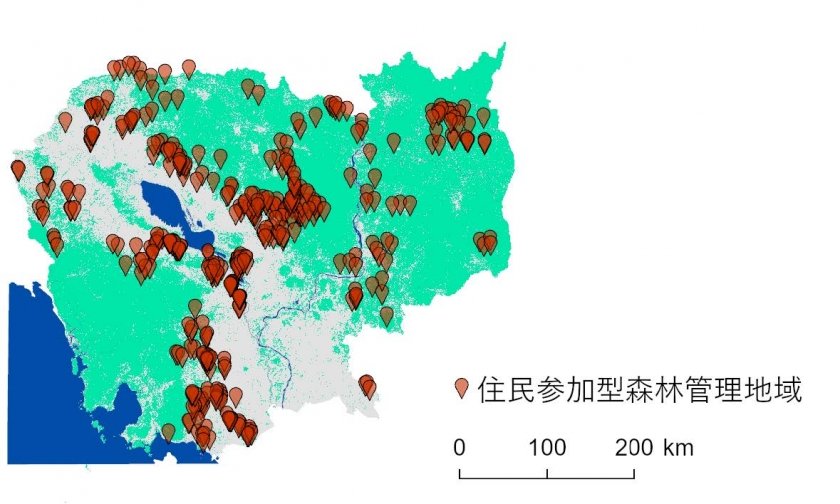Associate Professor Ota and his research group found that the participation of local residents can reduce the decline and degradation of tropical forests.
*The following sentences are translated by the automatic translation function.
POINT
- Tropical forests are required to reduce area loss and quality degradation.
- The study showed that forests actively managed by local residents reduced both area loss and quality degradation. However, it was also found that the effect depends on the year of establishment.
- The results of this study are expected to contribute to the formulation of forest management plans to conserve tropical forests.
SUMMARY
Forest management with the active participation of local residents has been attracting attention as a way to reduce the area and quality degradation of tropical forests. While it is known that participatory forest management can reduce the area of tropical forests, it has remained unclear whether it can also reduce forest quality degradation. Through a study conducted throughout Cambodia, we have shown that participatory forest management also suppresses the degradation of tropical forest quality.
A research group led by Miwa Ota, then a graduate student at Kyushu University's Graduate School of Bioresource and Environmental Studies, Associate Professor Tetsuji Ota and Professor Nobuya Mizoue of Kyushu University's Graduate School of Agriculture, Senior Researcher Nariaki Onda of the Forestry and Forest Products Research Institute's Tohoku Branch, Researcher Katsuto Shimizu of the Shikoku Branch, and the Cambodia Forest Department conducted an analysis across Cambodia to determine whether participatory forest management can reduce forest quality degradation. The research group, led by Shigeaki Mita, a senior researcher at the Northeast Research Institute, Katsuaki Shimizu, a researcher at the Shikoku Research Institute, and the Cambodia Forestry Department, conducted a Cambodia-wide analysis to determine whether there were differences in forest area and changes in forest quality between areas where participatory forest management was implemented and areas where it was not. The results showed that the reduction of forest area and degradation of forest quality were reduced in participatory forest management areas compared to areas outside of such areas. However, these effects varied depending on the year when participatory forest management was initiated, with newly established participatory forest management areas being less effective in reducing deforestation and degradation. The findings are expected to be useful in making recommendations for appropriate forest management to conserve tropical forests.
The preliminary version of this research result was published in the U.S. online scientific journal PNAS Nexus on Thursday, September 28, 2023.


Research-related inquiries
Tetsuji Ota,Associate Professor
Faculty of Agriculture,Department of Bioresource Sciences
Nobuya Mizoue,Professor
Faculty of Agriculture,Department of Bioresource Sciences












 Contact
Contact
 Access Map
Access Map

